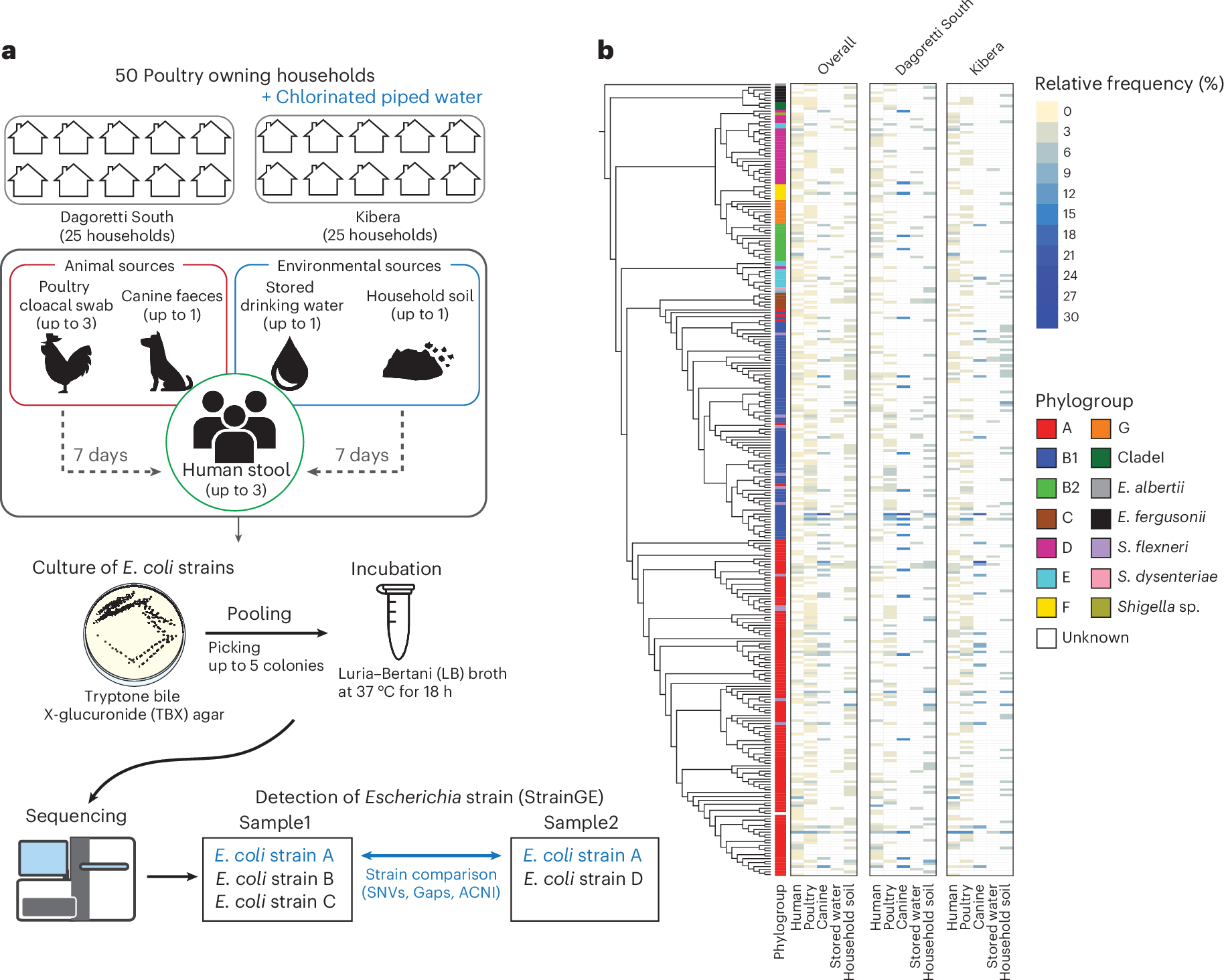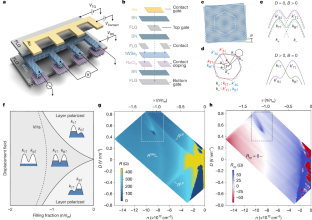2025-05-05 カリフォルニア大学バークレー校 (UCB)
<関連情報>
- https://engineering.berkeley.edu/news/2025/05/household-drinking-water-identified-as-key-pathway-for-bacterial-transmission/
- https://www.nature.com/articles/s41564-025-01986-w
汚染された飲料水は、都市のインフォーマルな居住地の家庭内で大腸菌の株共有を促進する Contaminated drinking water facilitates Escherichia coli strain-sharing within households in urban informal settlements
Daehyun D. Kim,Jenna M. Swarthout,Colin J. Worby,Benard Chieng,John Mboya,Ashlee M. Earl,Sammy M. Njenga & Amy J. Pickering
Nature Microbiology Published:01 May 2025
DOI:https://doi.org/10.1038/s41564-025-01986-w

Abstract
Identifying bacterial transmission pathways is crucial to inform strategies that limit the spread of pathogenic and antibiotic-resistant bacteria. Here we assessed Escherichia coli strain-sharing and overlap of antibiotic resistance genes (ARGs) across humans, poultry, canines, soil, and drinking water within and between households in urban informal settlements in Nairobi, Kenya. We collected 321 samples from 50 households with half having access to chlorinated water. We performed Pooling Isolated Colonies-seq, which sequences pools of up to five E. coli colonies per sample to capture strain diversity. Pooling Isolated Colonies-seq captured 1,516 colonies and identified 154 strain-sharing events, overcoming limitations of single-isolate sequencing and metagenomics. Within households, strain-sharing rates and resistome similarities across sample types were strongly correlated, suggesting clonal transmission of ARGs. E. coli isolated from the environment carried clinically relevant ARGs. Strain-sharing was rare between animals and humans but frequent between humans and drinking water. E. coli-contaminated stored drinking water was associated with higher human–human strain-sharing within households. These results suggest that contaminated drinking water facilitates human to human strain-sharing, and water treatment can disrupt transmission.



